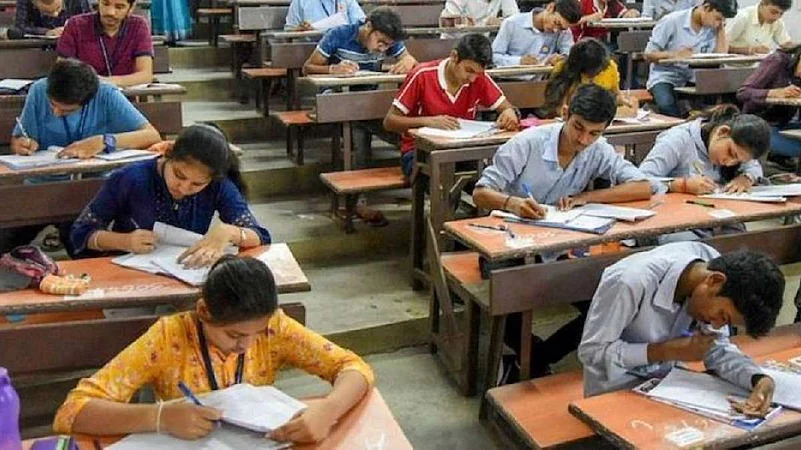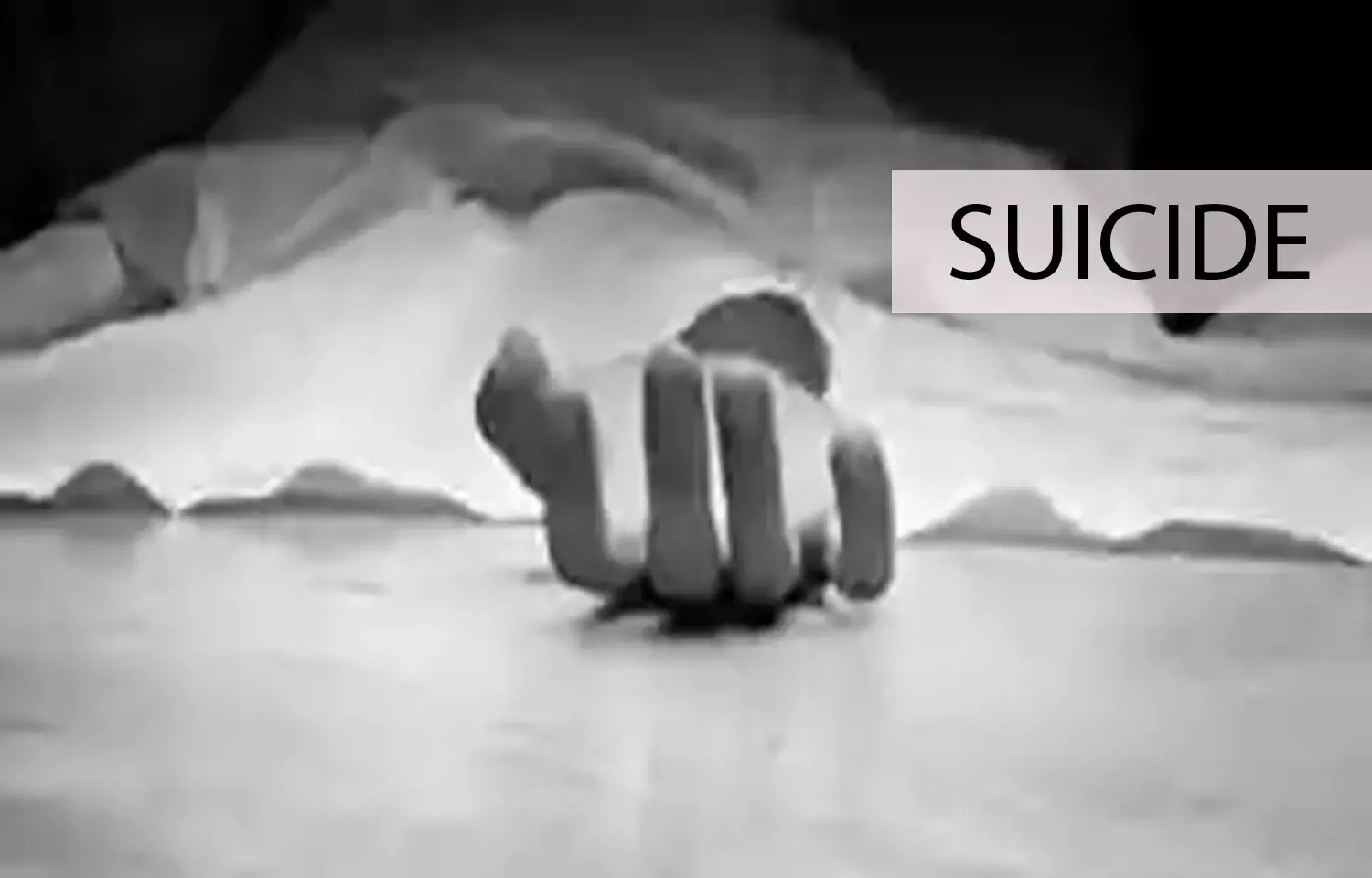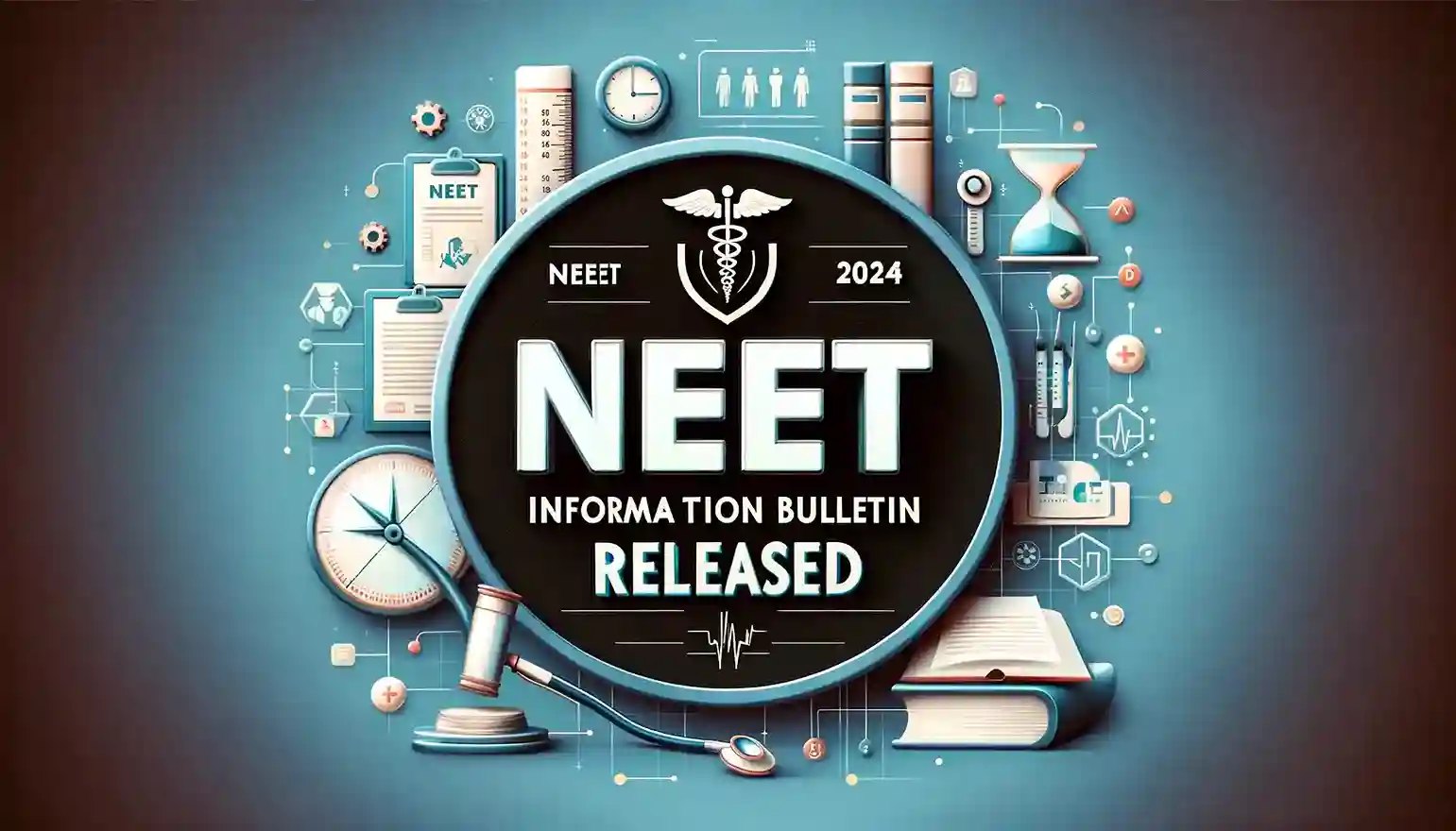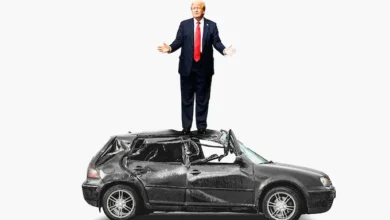Joining The Dots, NEET Controversy, NTA’s Refusal To Answer Important Questions, And The Apathy Of SC’s Verdict; NTA A Failure Right From Its Incorporation 2017-2024, Score Card, ZERO!

The National Eligibility cum Entrance Test has always been a controversial exam, capturing the attention of the entire country. While NEET is supposed to fulfill the dreams of medical aspirants, it has instead been marred by issues.
The NTA was established to ensure fair selection with minimal problems, but the NEET exam has turned into a nightmare for many students, surrounded by countless controversies over the years.
The controversy over this year’s NEET exam highlights longstanding systemic deficits.
The NTA reversed the grace marks of more than 1,500 candidates, offering them the option of a re-test after initially giving them the wrong question paper.
These students were awarded compensatory marks for the time lost switching to the correct paper. It took the Supreme Court’s intervention, in response to numerous petitions, for the NTA to acknowledge this “technical glitch.”
Education Minister Dharmendra Pradhan admitted the error occurred in only six of the more than 4,500 examination centers.
 But there seems to be more to this story.
But there seems to be more to this story.
First, let’s revisit some facts.
- One of the major controversies was fueled by a particular physics question that purportedly had two valid answers.
- The situation escalated when 44 of the 67 toppers were among the grace marks beneficiaries due to incorrectly marking this specific physics question.
- The problem came to light when an astounding 67 students clinched the prestigious title of “topper” this year, attaining a perfect score of 720 out of 720 marks, compared to the usual two or three toppers achieving this score in previous years.
This unexpected turn of events astonished aspirants and stakeholders, breaking the norm of having just a couple of toppers each year.
On the 13th, the Centre announced its decision to retract the grace marks given to more than 1,500 candidates who appeared for the NEET-UG 2024 examination.
This decision was communicated to the Supreme Court on Thursday, prompting a wave of unrest and concern among students who were already satisfied with their results.
The government’s move comes after widespread protests nationwide over alleged irregularities in the declaration of NEET 2024 results.
NEET results are crucial for securing entries into various medical courses throughout India. The court has announced that the re-test will likely be on June 23.
Additional concerns about the examination, including alleged instances of paper leaks, have surfaced, though Education Minister Dharmendra Pradhan has vehemently denied these claims.
Pradhan stated that the error occurred in only six of the more than 4,500 examination centers. Even so, such a mess is consequential, especially in a high-stakes examination where every mark is decisive.
 NTA – A Failure
NTA – A Failure
The NTA was created in 2017 to conduct national-level examinations for higher institutions of learning under the Modi government. If one assumes that it is only this year that the NTA has failed the “sanctity” of conducting fair exams, think again.
As one scrolls below, they will find a chronology of NEET controversies over the years.
But before that here are some important questions:
1) Why has the NTA repeatedly diverged and faltered in its role?
2) Why have there been countless allegations of paper leaks, grace marking, and controversies around toppers?
3) Why should the NTA not be dissolved considering it has grossly failed in its responsibility from the time it was formed, 2017-2024?
4) Is someone at the NTA taking bribes for selective paper leaks? If so, who is involved and how far up does this chain go?
5)Why should the CBI not conduct an inquiry into the NTA?
6) Why has the judiciary repeatedly failed to find a solution, instead being drawn into one controversy after another?
To understand why we are asking these questions, one can gauge from the chronology of events regarding NEET and the NTA’s utter failure.
 September 2017
September 2017
NEET 2018 faced significant political and social protests in Tamil Nadu due to the suicide of 17-year-old Anitha. Anitha, a medical aspirant from an economically and socially underprivileged family, filed a case against NEET in the Supreme Court.
The Tamil Nadu government had been challenging NEET, arguing that it disadvantaged rural and poorer students from government schools.
Anitha, who scored 1176 out of 1200 in her 12th class exam, could not afford rigorous NEET training due to her family’s financial condition.
Protesters claimed that without NEET, Anitha could have become a doctor based on her 12th class performance.
August 2017
In 2017, it was announced that NEET 2017 would be conducted in 10 languages listed in the NEET online form, excluding Urdu.
The Students Islamic Organization of India (SIO) filed a case in the Supreme Court demanding Urdu’s inclusion. The Court ruled in favor, mandating Urdu’s inclusion in the NEET 2018 exam.
June 2017
Another controversy arose when CBSE delayed the release of NEET 2017 results. Petitions filed by the Madras High Court on May 24 and another regarding the correctness of two questions led CBSE to delay the release of answer keys and results, which were eventually declared on June 23, 2017.
May 2017
A major controversy in NEET 2017 involved the stringent dress code. CBSE instructed candidates to wear light-colored clothes, half-sleeved shirts, and only slippers or sandals.
Candidates failing the metal detector test were barred from entering the exam center.
In Kerala, a female candidate was forced to remove her innerwear, and another in jeans was asked to change because the metal detector went off.
Female candidates were also asked to remove hairpins, bands, earrings, and nose rings.
 May 2017
May 2017
There were also complaints about the NEET question paper mix-up. In Warangal, candidates received English and Hindi question papers instead of Telugu.
Other complaints stated that questions in Marathi and Bengali differed significantly (about 85%) from the English paper, with claims that the difficulty level in other languages was higher.
Learning from these issues, CBSE decided that NEET 2018 would be conducted as a single-language exam to avoid translation mistakes.
May 2017
The situation worsened when news broke about the leak of the NEET question paper.
Five people, including two medical students, were arrested in Patna for attempting to leak the question paper. Students filed a petition demanding a re-conduct of the exam. Following numerous petitions, the authorities reached a settlement with the students.
December 2018
The Calcutta High Court decided to award 20 marks to a NEET 2018 candidate after Calcutta University informed the court that 5 questions had been wrongly translated into Bengali.
November 2018
In July, the Madras High Court ordered CBSE to grant 196 marks in the Tamil paper of that year’s NEET exam.
However, on the 22nd of November 2018, the Supreme Court rejected this order for all the 24,000 students who took the NEET exam in the Tamil language.
October 2018
With the start of NEET admissions, another controversy arose. The Karnataka High Court ordered the state government to conduct the admission process before the 25th of October 2018 for AYUSH courses.
Initially, those who did not qualify for NEET 2018 were not eligible for AYUSH courses. However, now, both NEET qualified and non-qualified candidates who meet the minimum qualifications can apply to various institutions across the state.
July 2018
In May 2018, several aspirants faced errors in the Tamil version of the NEET exam. Consequently, the Madras High Court ordered CBSE to grant 196 marks to the affected students for 49 controversial questions with errors in the NEET 2018 exam.
Passing the orders on a public interest litigation, the court also instructed CBSE to revise and republish the list of eligible candidates. This decision brought hope to many students who were stranded in despair, although the court left the final decision on the NEET counseling process to the authorities.
June 2018
With the start of NEET Counselling, another NEET controversy emerged. Students applying for the 15% All India Quota (AIQ) from Andhra Pradesh, Telangana, and some other states found that 27 government medical colleges were missing from the list provided by the Medical Counselling Committee (MCC).
Out of 222 government medical colleges identified for AIQ seats, only 195 were listed on the MCC website. According to the MCC, these colleges were not included in the first round of counselling due to technical reasons and were added in the second round, which started on July 3, 2019.
May 2018
May 2018 was undoubtedly a month filled with NEET controversies. Adding to the existing disputes, another issue arose when Apala Debnath filed a petition alleging that the Bengali version of NEET 2018 contained over 180 mistakes.
According to Debnath, the English version had no such errors, causing significant difficulties for Bengali aspirants like herself.
She sought a ban on the publication of results until a final verdict was reached. As a result, a vacation bench of the Calcutta High Court instructed NEET to reserve a seat for an examinee until a regular bench could decide on her petition.
The bench clarified, “The result may be published, but one post/position shall be kept open by NEET authorities. This shall not be a blanket ban on the publication of results.”
May 2018
Another controversy arose with the release of the NEET 2018 answer key on May 25, 2018. Many students who took the exam were unhappy with the answer key, claiming that some questions had doubtful answers.
Parents supported their children in challenging the answer key.
Previously, several prominent coaching institutes had raised objections against the options provided for some multiple-choice questions, stating that more than one option was correct.
 May 2018
May 2018
On May 11, 2018, the Delhi High Court dismissed pleas against the CBSE notification setting the upper age limit for NEET applicants at 25 years for the general category and 30 years for reserved categories.
The court ruled that this age limit was legal and valid. However, the High Court accepted pleas challenging the notification that barred students from open schools or those who studied privately from appearing in the test.
The court stated, “Students/candidates who have done Class XII from NIOS or recognized open school State boards would not be treated as per se disqualified for selection and appearance in the NEET examination.
Their NEET results, when otherwise eligible, would be declared with other candidates.”
May 2018
The NEET 2018 controversies continued on May 11, 2018, when a female student filed a police complaint about the inconvenience and harassment she faced while appearing for the NEET 2018 exam in Palakkad (Kerala).
The girl alleged that she had to remove her innerwear during security checks and that an external observer had stared at her inappropriately.
The police registered the case under IPC section 509 and began an investigation.
May 2018
On May 9, 2018, the National Human Rights Commission (NHRC) issued notices to the CBSE Chairperson and the Chief Secretary of Tamil Nadu over alleged harassment and inconvenience experienced by candidates during security checks for the NEET 2018 exam.
In addressing the ongoing NEET 2018 controversy, the NHRC stated: “Cutting the sleeves of shirts and tearing pants to remove buttons, etc., are unethical acts by the staff deployed at the exam centers.
This amounts to a violation of the right to dignity of the aspirants. There is a further need for the authorities to rethink and adopt a certain mechanism to ensure security checks at the exam centers in a dignified manner.”
Previously, on May 8, 2018, the NHRC had issued a notice concerning the difficulties faced by Tamil Nadu candidates in reaching other states to appear for the NEET 2018 exam.
May 2018
On May 6, 2018, the day of the exam, nearly 100 students in Madurai (Tamil Nadu) were given question papers in Hindi, creating panic as they were unable to understand the language.
The question papers were later replaced with bilingual English and Tamil versions.
This issue mirrored a controversy from NEET 2017 when candidates in Warangal (Telangana) received question papers in English and Hindi instead of Telugu.
Similarly, students in Dibrugarh, Assam, faced undue harassment due to a shortage of question papers and were not provided with papers in their preferred language.
In Assam, at Vivekananda Kendra Vidyalaya, the exam, scheduled from 10 am to 1 pm, was conducted in two sessions. Many students left the exam hall at halftime because the question papers were not in their preferred language, Assamese.
 May 2018
May 2018
With the release of the admit cards on April 17, 2018, a new controversy emerged. Candidates from Tamil Nadu were shocked to find their exam centers were located in states like Rajasthan, Kerala, and Karnataka.
This led to protests from aspirants and political parties.
The case reached the Madras High Court, which directed the Central Board of Secondary Education (CBSE) to recall the allotments and provide alternate centers within the same area or at least within the state.
However, CBSE challenged this decision in the Supreme Court. On May 4, 2018, the Supreme Court rejected the petition seeking local exam centers for Tamil Nadu candidates, directing students to appear for the NEET exam at their allotted centers only.
May 2018
In another development, the Supreme Court allowed Sikh candidates appearing for the NEET 2018 exam to wear their ‘Kripan’ or ‘Kara’.
The Court directed that Sikh candidates carrying ‘Kripan’ should report to their examination centers one hour before the allotted reporting time to ensure they could be properly screened.
February 2018
The official notification released by CBSE on February 8, 2018, regarding NEET eligibility criteria sparked significant controversy.
According to the information bulletin, students from NIOS and Open School Boards were declared ineligible to appear for the exam. This decision led to nationwide protests as it was a major setback for these students.
A petition filed against CBSE was met with a public notice on February 24, in which CBSE stated it would not respond to queries or grievances regarding eligibility criteria and directed all concerns to the Medical Council of India (MCI).
Protestors, including students and their parents, approached the Delhi High Court, resulting in a ruling that allowed NIOS and Open School Board students to appear for NEET 2018.
February 2018
Another protest arose over the upper age limit criteria mentioned in the NEET information bulletin. The criteria restricted candidates older than 25 years from appearing for the exam, a measure taken by the Medical Council of India (MCI) to limit the number of candidates.
Although a five-year relaxation was provided for SC/ST/OBC candidates, the rule faced significant backlash.
On February 28, 2018, the Delhi High Court temporarily altered the criteria for one year, allowing unreserved category candidates older than 25 years to appear for NEET 2018.
Consequently, the upper age limit for SC/ST candidates was set at 30 years after relaxation.
 February 2018
February 2018
Students with Biology/Biotechnology as an optional subject were alarmed by new guidelines in the NEET information bulletin, which stated that such students were not eligible to appear for the exam.
This caused widespread panic among students and their parents.
They approached the Delhi High Court, seeking amendments. The court ruled in favor of the students, allowing those with Biology/Biotechnology as an optional subject to appear for NEET 2018.
May 2018
In a significant decision, the Supreme Court allowed Sikh candidates to appear in the NEET 2018 exam with their ‘Kripan’ or ‘Kara’. The Court directed Sikh candidates carrying ‘Kripan’ to report to their examination centers one hour before the allotted reporting time to undergo proper screening.
February 2018
The official notification released by CBSE on February 8, 2018, regarding NEET eligibility criteria sparked significant controversy.
According to the information bulletin, students from NIOS and Open School Boards were deemed ineligible to appear for the exam. This decision led to nationwide protests as it was a major setback for these students.
A petition filed against CBSE was met with a public notice on February 24, stating that CBSE would not respond to queries or grievances regarding eligibility criteria and directed all concerns to the Medical Council of India (MCI).
Protestors, including students and their parents, approached the Delhi High Court, resulting in a ruling that allowed NIOS and Open School Board students to appear for NEET 2018.
February 2018
Another protest arose over the upper age limit criteria mentioned in the NEET information bulletin. The criteria restricted candidates older than 25 years from appearing for the exam, a measure taken by the Medical Council of India (MCI) to limit the number of candidates.
Although a five-year relaxation was provided for SC/ST/OBC candidates, the rule faced significant backlash. On February 28, 2018, the Delhi High Court temporarily altered the criteria for one year, allowing unreserved category candidates older than 25 years to appear for NEET 2018.
Consequently, the upper age limit for SC/ST candidates was set at 30 years after relaxation.
February 2018
Students with Biology/Biotechnology as an optional subject were alarmed by new guidelines in the NEET information bulletin, which stated that such students were not eligible to appear for the exam.
This caused widespread panic among students and their parents. They approached the Delhi High Court, seeking amendments.
The court ruled in favor of the students, allowing those with Biology/Biotechnology as an optional subject to appear for NEET 2018.
February 2018
The eligibility criteria were not the only contentious issue. According to the official NEET notification, students planning to pursue MBBS and BDS courses in foreign universities must first clear the NEET exam.
Previously, no such rule applied to students enrolling in foreign universities in countries like China, Russia, and Ukraine.
January 2018
On January 17, 2018, the Union government announced that the state curriculum would be considered in the NEET 2018 syllabus.
This announcement angered many parents of CBSE Board students. Following the protests, the Union government reversed its decision, stating that there would be no changes to the syllabus.
Subsequently, CBSE issued a public notice confirming: “The syllabus of NEET (UG) 2018 will be exactly the same as it was for NEET 2017. There is no change in the syllabus for NEET 2018.”
April 2019
On the 15th of April 2019, the NTA released NEET 2019 admit cards, which were associated with several controversies.
It was found that the exam date was incorrectly mentioned and the originally allotted exam centers were canceled.
After a series of protests and controversies, candidates learned to be very cautious regarding the Do’s and Don’ts of NEET.
The Last Bit, Given that students and their parents are the most affected by these controversies, the chronology of significant events and criticism has made NEET the most debatable exam in the country and equally debatable is NTA’s existence!




